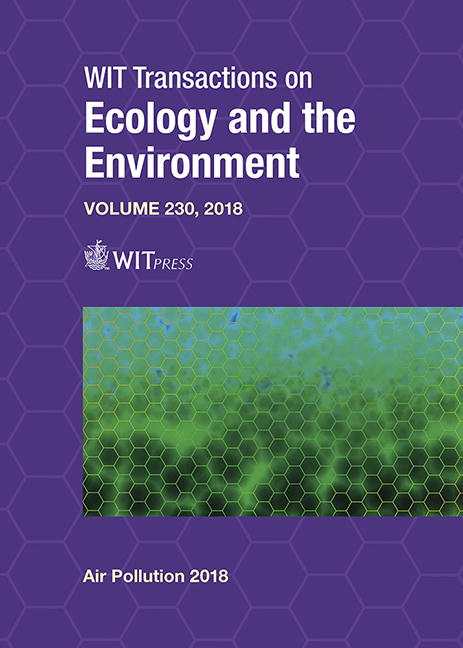CLIMATE CHANGE MITIGATION: HYPOTHESIS-FORMULATION AND ANALYSIS OF INTERVENTIONS
Price
Free (open access)
Transaction
Volume
230
Pages
12
Page Range
387 - 398
Published
2018
Paper DOI
10.2495/AIR180361
Copyright
WIT Press
Author(s)
ILYA ANISIMOV, ANASTASIYA BURAKOVA, ELENA MAGARIL, ROMEN MAGARIL, DENIS CHAINIKOV, DEBORAH PANEPINTO, ELENA CRISTINA RADA, MARIA CHIARA ZANETTI
Abstract
Nowadays the world energy consumption continuously increases due to various human-related activities. Increasing energy efficiency and decarbonizing the economic development, especially with measures aimed at the most energy-intensive sectors (industry, buildings, and mobility) is therefore a way towards the “eco-sustainable” community. The energy efficiency improving has environmental implications as it results in a reduction of the atmosphere polluting emissions. For the GHG (and in particular for the carbon dioxide) it is necessary to study and to analyze the so-called “negative technologies” – technologies that allow a carbon dioxide concentrations reduction. Considering the strategies in order to limit the climate change and to improve the air quality, it is necessary to assess the impacts of both these phenomena and therefore to identify synergies (win – win) and avoiding solutions that improve one of the two phenomena and worsen the other one (win – lose). The aim of this work is to analyze the opportunities of the “negative technologies” application for the climate change mitigation and to formulate the hypothesis of mobility modification using methods for the fuel consumption reduction. The negative technologies were studied from a technological point of view analyzing the potential advantages and disadvantages and stressing the technical challenge. The new approach for reduction of environmental and climatic impacts of vehicle operation on the environment by changes in the albedo of a vehicle roof is suggested. The proposed method allows to reduce the fuel consumption and greenhouse gases emission while idle with the engine running. The cost-effective modification in fuel quality using the microdose of the developed surface-active additive enables to reduce the specific fuel consumption dramatically, and substantially improves the environmental characteristics of vehicles operation. The combination of the proposed methods provides the opportunity for significant reduction of the GNG and toxic substances emissions by motor transport.
Keywords
climate change mitigation, environmental impact assessment, mobility modification, fuel consumption reduction, vehicle operation, albedo, surface-active fuel additive





